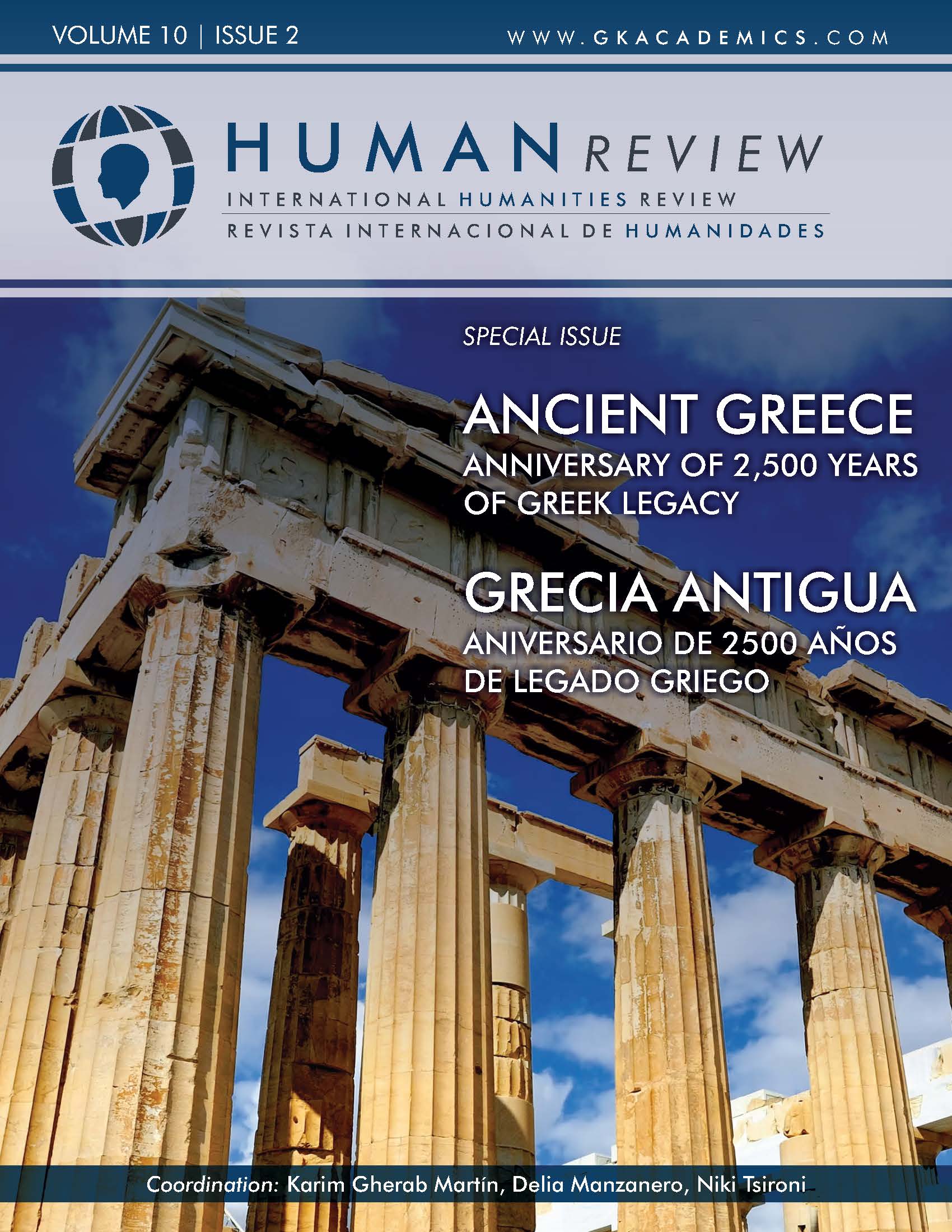Sally Brown and the Greek Philosophers: Do We still Have Something to Learn from Them?
Keywords:
Nature, History, Time, Philosophy, ScienceAbstract
Learning from the Greeks is possible, but only if we start from two necessary bases: the first one is that our world is profoundly different from theirs; the second one, that free thought requires not being imprisoned by any dogma. The primitive way of thinking of the Greeks is a school that can help us to strip away the enormous number of assumptions on which the contemporary mentality is based.
References
Arendt, H. (1996). Entre el pasado y el future. Ediciones Península.
Aristóteles, Metafísica. (2ª edic., edic. trilingüe de V. García Yebra). Gredos.
Berlin, I. (1988). Cuatro ensayos sobre la libertad. Alianza Editorial.
Canales, J. (2020). El físico y el filósofo: Albert Einstein, Henri Bergson y el debate que cambio nuestra comprensión del tiempo. Espasa.
During, É. (2020). Bergson, Einstein, et le temps des jumeaux: une singulière obstination. En Compagnon, A. y Suprenant, C. (2020). Einstein au Collège de France. Collège de France.
Feynman, R. (2000). El placer de descubrir. Crítica.
Heisenberg, W. (1958). Physics and Philosophy: The Revolution in Modern Science. Penguin.
Kirk, G. S., Raven, J. E. y Schofield, M. (1970). Los filósofos presocráticos. Gredos.
Ortega y Gasset, J. (1947). Obras Completas, IV. Revista de Occidente.
— (1947) Obras Completas, II. Revista de Occidente.
Orwell, G. (1949). 1984. DeBolsillo.
Scheler, M. (1978) El puesto del hombre en el cosmos. Editorial Losada.
Schrödinger, E. (1955) The Nature and the Greeks. Cambridge University Press.
Zubiri,X. (1987). Naturaleza, Historia, Dios. Alianza Editorial.
Downloads
Published
Issue
Section
License
All articles are published under an Attribution-NoDerivatives 4.0 International (CC BY-ND 4.0) license. Authors retain copyright over their work.

